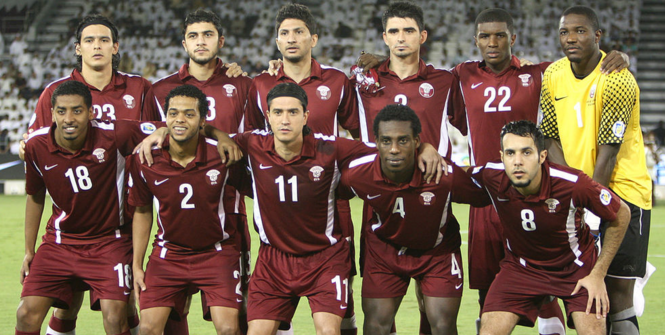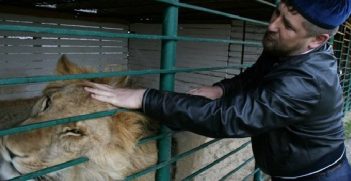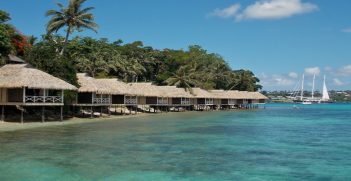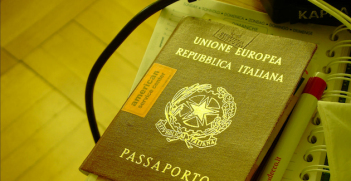Football Diplomacy: How Qatar won the 2022 World Cup

Qatar won the right to host the 2022 FIFA World Cup by placing its bid at the centre of its national and foreign policy strategy.
Qatar’s huge oil and gas reserves have, in the space of four decades, taken it from backwater to the richest country on earth per capita. The Al Thani Royal Family has used the cash generated to expand its geopolitical influence to become a major regional player in the most geopolitically chaotic region in the world, projecting power that belies Qatar’s size.
The 2022 FIFA World Cup is an extension of this geopolitical influence. For millennia, sport has been used by states to “show off” off their superiority to rivals and from the 20th century onwards this has included hosting sport events, especially the Olympics and FIFA World Cup. Hosting one of these sporting spectacles brings immense international and domestic recognition and prestige, as well as providing economic, political, community and diplomatic opportunities.
Domestically, these events are a strong source of building national pride and identity, are wildly popular with the masses, provide an incentive to stimulate infrastructure growth and allow the political class to cover themselves in reflected glory and add to their legacies. Internationally, it encourages the networking of various elites and allows the host to project a certain image or convey certain messages and generate soft power.
Football is Qatar’s (and the Al Thanis’) favourite sport. Qatar’s 2030 Industrial Vision has sport as a fundamental pillar of the nation’s strategic development and growth. Neither the Olympics nor the World Cup have ever been held in the Arab world. For Qatar to become the first raises its profile and influence among its peer states. But it is one thing to say you want to host the World Cup, it is quite another to actually host it. How did Qatar pull it off?
Qatar put hosting the World Cup near the top of its list of foreign policy objectives – as vital to the national interest – and treated it accordingly by allocating the appropriate time, resources, personnel and money. All of the various arms and organs of government were enlisted as Qatar used its full diplomatic clout to achieve its goal.
The nation submitted bids to host less prestigious international sporting events. This included a bid in 2006 to host the 2011 AFC Asian Cup and a bid in 2008 to host the 2011 Arab Games, both of which it won. In the years following winning the hosting rights, Qatar submitted bids to host the 2015 Handball World Cup, the 2015 Amateur World Boxing Championships and the 2019 World Championship in Athletics. The early bids were designed to give the Qataris experience on how to make a successful bid – and condition international sporting bodies to see Qatar as a viable option to host events. Hosting these international events for less popular sports gave Qatar an understanding of how to deal with the demands of hundreds of athletes and thousands of fans from different nations and cultures.
Mohammed Bin Hammam, the then President of the AFC and past FIFA Vice President, is from Qatar and, according to British media, heavily lobbied on behalf of his homeland. This took the form of allegedly paying €3million in bribes to various elites from Africa, Central America, South America and Oceania. Qatar also paid for the public support of famous football identities including Zinedine Zidane, Alex Ferguson, Ronald de Boer and Pep Guardiola and agreed to vote-swap with Spain and Portugal, which had submitted a combined bid for the 2018 World Cup.
In the years leading up to the vote, Qatar sought to gain the support of the centre of world football, Europe. To do so, Qatar announced a sponsorship deal with Barcelona FC worth €150million over five years and channelled almost €500million into then French President Nicolas Sarkozy’s favourite club, Paris Saint Germain. To secure the German vote, Qatar allegedly promised then President Christian Wulff to give preference to German bidders when awarding infrastructure contracts for the World Cup. Additionally, the state-funded broadcaster, Al-Jazeera, purchased the broadcast rights for several European football competitions and Qatar announced that it would begin testing French-made fighter jets with a look to purchasing them as part of Qatar’s air force upgrade.
Despite what Europeans might think, world football is bigger than Europe. The Qataris understand this. As early as 2005, Qatar bankrolled Aspire Academy’s Football Dreams, a program that scouts and trains talented youngsters from the world’s poorest nations – including nations with representatives on FIFA committees. To garner support from its neighbours, Qatar highlighted that despite making up significant percentages of the world’s population and geography, no Arab or Muslim nation had ever hosted the Cup. Its bid was an opportunity to rectify this oversight and take football to a new frontier. To further its appeal for the developing world, Qatar announced that following the World Cup, it would dismantle stadiums and donate them to developing nations.
Qatar was announced as the host of the 2022 World Cup in December 2010 and will invest US$200 billion in World Cup related infrastructure, making it the most expensive sporting event ever.
By prioritising hosting the cup as being in the national interest, and the subsequent appropriate concentration of state resources, Qatar ensured no other bidder would have stood a chance without adopting a similar level of commitment. While highly questionable, much of Qatar’s lobbying and work to win the 2022 FIFA World Cup hosting rights were standard practice at the time and should be a point of pride for its diplomatic services. The state used its full influence and soft power in achieving its desired outcome.
Following Qatar’s successful bid the losing bidders, particularly the United States, have been using their own diplomatic clout and influence in exposing and punishing the governance issues at FIFA that Qatar managed to exploit better than the other bidders. The fallout continues.
Stjepan Bosnjak is a Master of Arts (Research) student at Victoria University. This article may be republished with attribution under a Creative Commons License.





